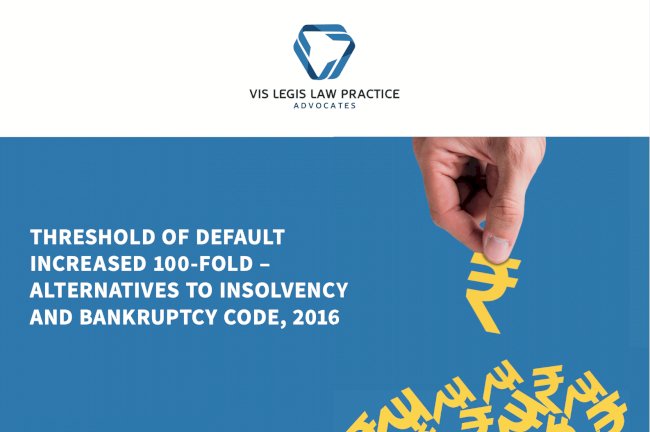The Impact of COVID-19 on the Real Estate Sector
VLLP newsletter on the Impact of COVID-19 on the Real Estate Sector in India.
Impact of the Covid-19 on the real, estate sector
As the country is enveloped by the pandemic of Covid-19, the real estate sector in the country like many other businesses has come to a complete standstill. Due to the nationwide lockdown being imposed, the project sites are shut, site visits are no longer permitted and construction activities have come to a halt. Indian real estate sector was just in the process of coming to terms with the various reforms brought by demonetization, GST etc. but owing to the lockdown it has faced another major setback, slowing down its growth momentum.
While it has been common for builders and developers to delay the projects and keep extending the time lines, now due to the lockdown, it is inevitable that the ongoing projects would get further delayed. In order to aid the real estate sector during the lock down, the Central Government and other regulatory bodies have taken steps to manage the situation. Important notifications and guidelines have been issued by different authorities including the Maha Rera, SEBI and the RBI has also endeavored to provide some relief to the citizens during the current upheaval.
For instance the Maha RERA vide its Order bearing Reference No. 3/2020 dated 2nd April 2020, has extended the validity period for registration of such real estate projects, the completion date or extended completion date for which was expiring on or after 15th March 2020, for a period of three months. The Maha RERA also extended the time limits of all the statutory compliances which were due in March / April / May to 30th June 2020. Other States' Real Estate Regulatory Authorities have also issued similar orders. It, however must be borne in mind that mere extension of registration granted by the RERA Authorities is not sufficient as the promoters/builders are also contractually liable to the flat purchasers to complete the projects within the timelines committed by them. Accordingly, it is essential that builders/promoters intimate the revised timelines to the flat buyers in terms of the provisions of the contract/agreement/allotment letter executed with them or in their favour. Most of the developers have also already invoked the Force Majeure clause as contained in the contract/agreement/allotment letter to extend the timelines for completion of the projects.
The regulatory bodies along with the various ministries of the Government of India have also been issuing guidelines to provide some relaxation in the compliance norms during the period of lockdown. On 23rd March, the Securities and Exchange Board of India (SEBI) extended the timelines for all filing and compliance obligations of Real Estate Investment Trusts (REITs) and infrastructure investment trusts for the period ending 31st March 2020, by one month. The Reserve Bank of India (RBI) on 27th March 2020, vide its press release issued a slew of measures to ease the repayment pressures and improve access to working capital.The three months moratorium allowed by the banks on payment of installments in respect of all term loans outstanding as on March 1, 2020 will give some relief to the developers and the home buyers. In addition, the Hon’ble Bombay High Court by an order dated 19th March 2020 suggested that the Commissioner of the Municipal Corporation of Greater Mumbai (MCGM) as well as Commissioners of all Municipal Corporations in Maharashtra to issue a directive to not to demolish, evict and/or hold auctions of attached properties for a specified time period.
Apart from the above measures that have been taken to protect the interests of the promoters/builders/investors, with a view to provide relief to construction workers, the Ministry of Labour & Employment of the Government of India issued an advisory dated 24th March, 2020 directing all the States/ Union Territories to transfer funds in the accounts of construction workers through Direct Benefit Transfer (DBT) mode from the Cess fund collected by the Labour Welfare Boards under the Building and Other Construction Workers, (BOCW) Welfare Cess Act, 1996.
The Ministry of Employment and Labour also by a communication dated 20th March 2020 advised all the Employers of Public/Private establishments to offer a helping hand and extend their coordination by not terminating their employees, specifically casual or contractual workers from jobs or reduce their wages. The Advisory was followed by an Order of the Ministry of Home Affairs dated 29th March 2020, under the Disaster Management Act, 2005 inter alia directing employers to not to deduct wages of their workers.
The Maharashtra government has also decided to resume online registration and payment of stamp duty on sale and purchase of properties, in accordance with the directives of a cabinet sub - committee. The committee has also opined that if the industrialists assure that proper care would be taken of their workers’ accommodation and health in rural areas and industrial estates of MIDC, then they can allow the reopening of such industrial units.
The Union Home Ministry has issued guidelines dated 15th April 2020 to be adhered to during the lockdown, under which permission has been granted to resume after 20th April 2020, construction of roads, irrigation projects, buildings and all kinds of industrial projects in rural areas, i.e., outside the limits of Municipal Corporations and Municipalities and in Industrial Estates. Continuation of construction work within the municipal units have been allowed where workers are available on site and no new workers are required to be called from outside. However, these permissions are not applicable to containment zones and developers while acting under these permissions will have to ensure compliance with measures like social distancing and sanitization of work place etc.
The above mentioned measures have been taken by various government authorities and other regulatory bodies to provide some aid to the real estate market to sustain during this crisis. The real estate sector is largely dependent on various other industries to function. However, due to the mandated lockdown, the industries on which the real estate sector relies upon are also not functioning. For instance, the labour force and transport facilities are not available to their full potential to carry out and facilitate the construction work and the supply chains have been disrupted.
The long term economic repercussions of the Covid-19 outbreak are still unascertained. While India is undoubtedly endeavoring to control Covid-19, with the numbers of infected people increasing every day, even if the lockdown is lifted on 3rd May 2020, certain restrictions will still prevail during the coming months and the construction activity may not start immediately. Under such circumstances, it is clear that real estate sector will also take at least a few months or more to pick up.
A vital role will have to be played by the state after the lockdown comes to an end to lift up an economy which is witnessing a severe downfall at this juncture. Real estate sector has been adversely hit by the imposition of the lockdown and the recovery will depend upon the steps which the government takes to help the economy and regain business. Indian Real estate sector has a significant contribution to the economy and employment generation and the rampant spread of the Covid-19 together with the mandated lockdown has created an atmosphere of uncertainty, leading to the delay in completion of projects and suspension of new launches. This coupled with the fact that buyers/investors also do not have the means to invest in real estate projects immediately would mean that the sector will continue to be in a slump for the months to come. Though the various authorities have strived hard to mitigate the effects of the disruption on the real estate sector, the challenge will continue beyond the lock down. It remains to be what kind of pivotal steps will be adopted by the Government and the builders/promoters after the lockdown is over to revive the market again.
Click Here To See More
Files
What's Your Reaction?






















